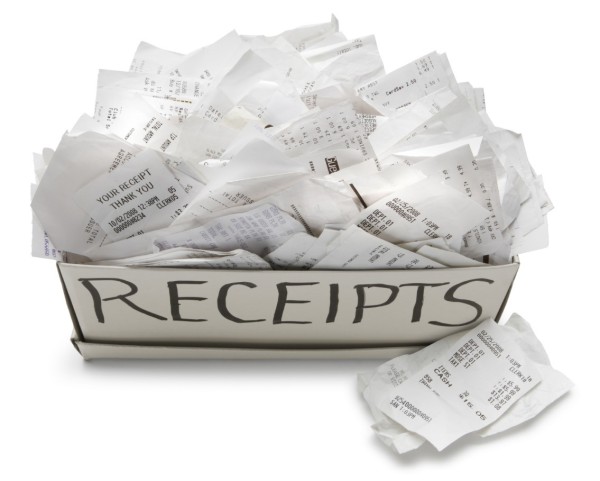
20 Apr Top Tax Deductible Business Expenses
Are you still in the post “tax season” window of being organized? You know where you promised yourself that you would keep up with your expenses?
If you have hired an accounting and bookkeeping service to help you that is great. But you should still make sure you are paying all your qualified business expenses through your business.
Let’s determine what business expenses are deductible.
Home Office. If you work out of your home, you can deduct the expenses associated with the area of your home you use exclusively for business. It simply involves calculating the square footage of the room or area that you use exclusively for business divided by the total square footage of the property to determine the percentage of space your business uses. Then you can apply that percentage to your mortgage interest, insurance, utilities, repairs, and rent payment or depreciation of the cost of the property as a business deduction.
Equipment and Supplies. From software to furniture and office accessories, be sure to keep all receipts and have your business pay for any equipment and supplies you use to run your business. These expenses include software you use for business, printers, printer supplies and all the rest – even pens, notepads, and other office supplies. Personal property, like computers, that are not 100% business are only deductible up to the business use percentage. One suggestion is to have a computer designated as a work computer rather than using a family machine so you can deduct the entire cost.
Auto Expenses. There are two ways to deduct automotive expenses: mileage or actual expenses. The easiest is, and often the most advantageous, is to reimburse business mileage. In 2015, the magic number used to deduct mileage is $0.575 per mile which mean if you logged 10,000 business miles in a year, you could take a $5,750 deduction for mileage. One important item to note for business owners working out of their homes, you may start counting mileage the minute you pull out of your driveway whereas if you go to an office first, the mileage to and from the office is not deductible. Be sure to maintain an accurate and detailed account of mileage that shows the date of the trip, number of miles and the business purpose.
Actual expenses include depreciation of the cost of the vehicle, gas, repairs, maintenance items (including car washes), licensing and taxes, and any other costs associated with acquiring and keeping the vehicle. On the business percentage of these expenses are deductible.
Your accountant and tax professional will compare which method works best for any given tax year so make sure your bookkeeper and accountant keep both mileage and actual expense information.
Social Security and Medicare Taxes. If you are a sole-proprietor, or taxed as a partner in a partnership, half of your social security and Medicare taxes are a tax deduction. While that sounds like good news, because you are self-employed, you are required to pay double the social security and Medicare that employees pay. At least you can deduct part of it.
Business use of Cell Phones. If you use your cell phone for business you can deduct the business portion of the cost of the phone and phone service. It is important to document how you calculate your business versus personal use of the cell phone. If you have a personal cell phone in addition to your business cell phone the task is easy!
Travel and Meal Expenses. If you have to travel away from home for business, your traveling expenses associated with the trip are tax deductible. These expenses include hotel, airfare, taxis, train or bus fare, car rental (including gas for the rental car), tolls and parking.
Meal cost have a whole different set of rules. Meal expenses while traveling away from home are 50% deductible. While at home, any meal costs eaten alone are a personal expense and not deductible. But if the meal has a business purpose and involves a customer or prospective customer it is 50% deductible. For example, you are giving a sales presentation in your office and then take your prospective customer to lunch afterwards it would be 50% deductible.
Your travel and meal receipts have to be detailed as to the “who, what and when and why’s” associated with these expenses to be tax deductible. A great tip is to make notes on receipts while they are fresh so that you do not have to try and remember or go back through notes. You want to note the customer name and business purpose of the expense. Also, if you combine a business trip with pleasure, you can still deduct the business percentage of the trip as long as the primary reason for travel is business. If you bring family along on your excursion – your business portion of the expenses are deductible, your family’s expense are not.
Professional Fees. This deduction is available for any fees you incur from attorneys, accountants, and any other professional you may need to pay for business related services. It also includes fees associated with professional trade organization memberships to which you belong that are a benefit to your business.
Keep the Receipt. Working with your CPA and professional bookkeeping service that is well verse in the tax preparation arena makes the process much easier. They know what is and what is not tax deductible. As for what is deductible, probably the biggest takeaway is that if you think an expense may be tax deductible, keep the receipt and discuss it with your accountant. Paying your business deductible expenses through your business will make next tax season easier for everyone – especially you.
Let TBooks be your trusted adviser for all things tax deductible. Contact us for a free consultation.

No Comments